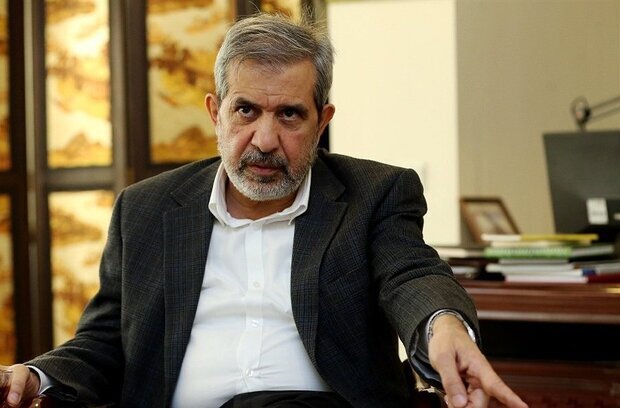No U.S. politician wants Islamic Republic to exist: ex-diplomat

TEHRAN – No American politician – whether Republican or Democrat – wants the Islamic Republic of Iran to exist, says Hamid Reza Asefi, a former Iranian diplomat.
“The mistake began when we thought the Americans wanted us to exist but change,” Mehr on Sunday quoted Asefi as saying, while referring to the 2015 Iran nuclear deal, officially known as the Joint Comprehensive Plan of Action (JCPOA).
He made the remarks in a TV program.
“I do not believe that Barjam (JCPOA) was based on optimism or misplaced trust,” he said, adding, “Rather, it might have been based on inaccurate analysis.”
The former diplomat continued, “No American politician wants the Islamic Republic to be, and in this regard, there’s no difference between the Republicans and Democrats.”
Pointing to the Trump administration’s anti-Iran policies, Asefi said he believes if Barack Obama was still president, he would have done the same but in a different way.
Asked if there are people in the Foreign Ministry who believe the country’s problems can be resolved through dialogue with the U.S., Asefi said, “It is possible that some experts in the Foreign Ministry think to resolve the problems, [Iran] should cooperate or establish good relations with the U.S.”
“There are also diplomats on the other side who do not think this way,” he added.
Asefi, who has served as Foreign Ministry spokesman and ambassador to Paris, said while Zarif is bound by the policies of the Islamic Republic, some of his policies can be criticized.
Iran and six world powers, including the U.S., France, Russia, Britain, China and Germany, struck the JCPOA in 2015, with Zarif acting as Iran’s chief nuclear negotiator.
The JCPOA has since been widely criticized by Iran’s conservative figures, some of whom have described the accord as “treasonous”.
Domestic attacks against the JCPOA reached its peak right after U.S. President Donald Trump withdrew the U.S. from the deal and reimposed sanctions on Tehran, which had scaled back its nuclear activities and remained fully committed to the deal.
However, as tensions grew between Tehran and Washington, Iranian politicians preferred to take steps toward unity in the face of the foreign threats.
MH/PA
Leave a Comment